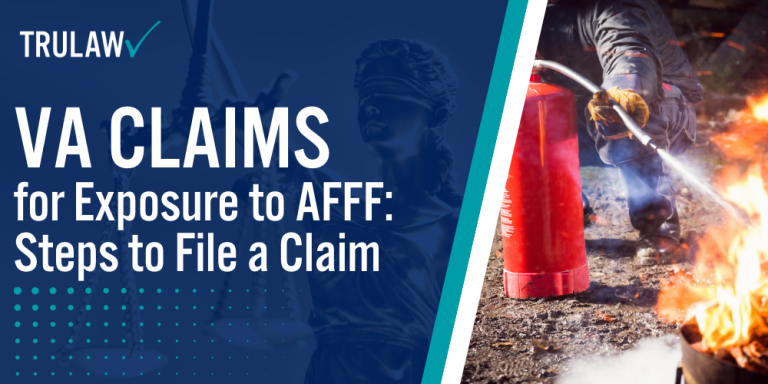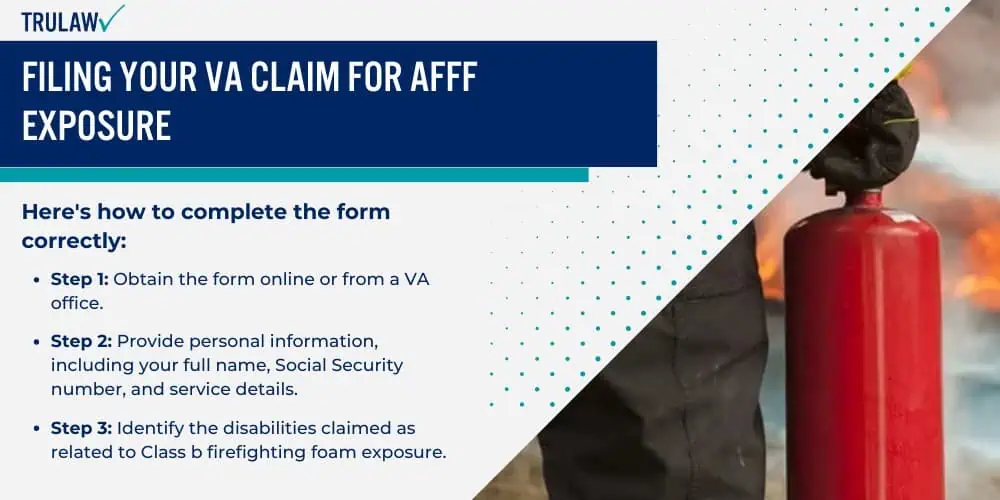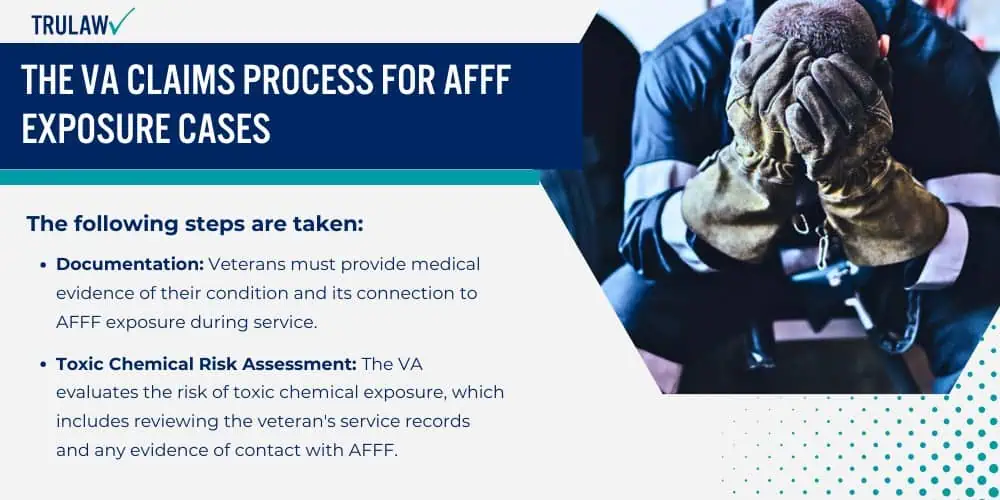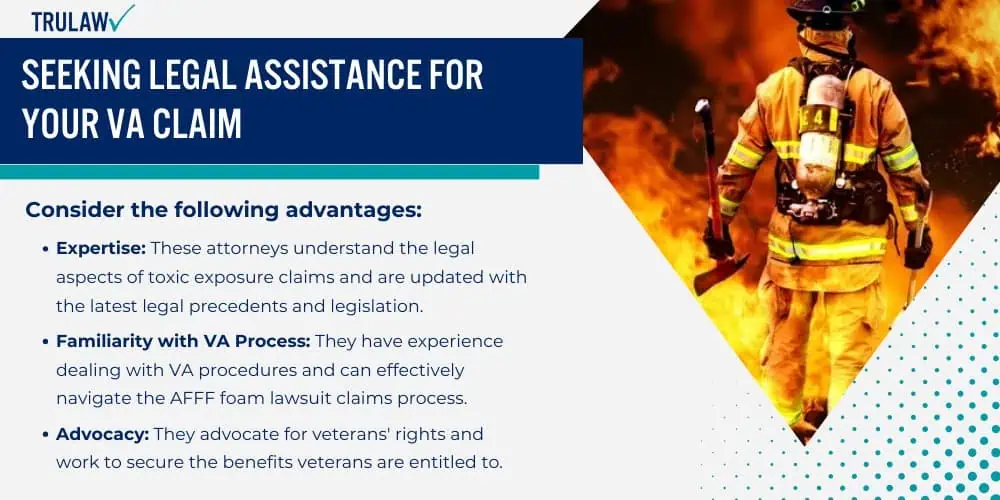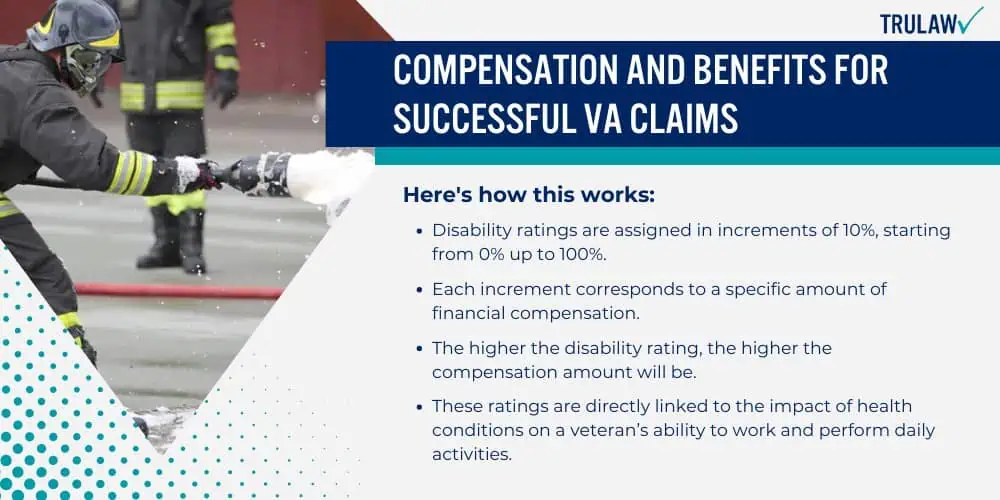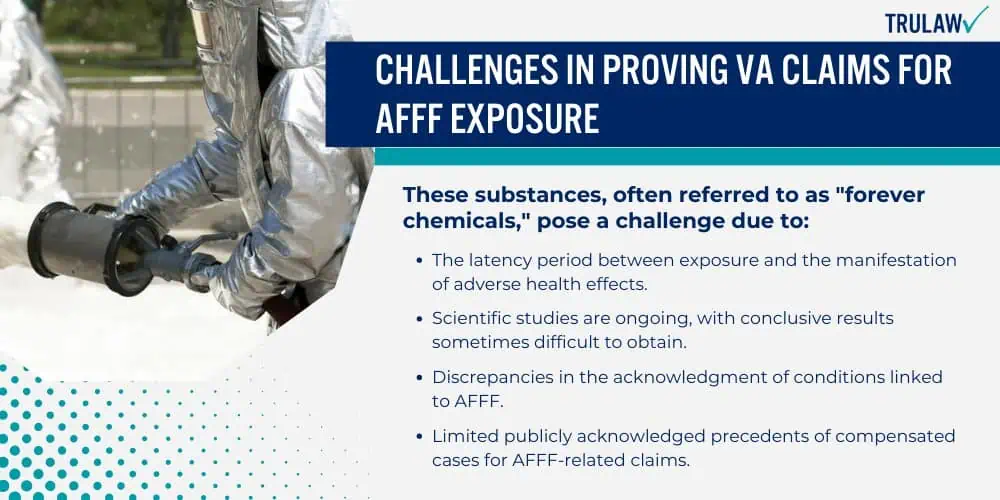Veterans seeking VA disability claims for conditions related to AFFF (Aqueous Film Forming Foam) exposure must meet specific eligibility criteria.
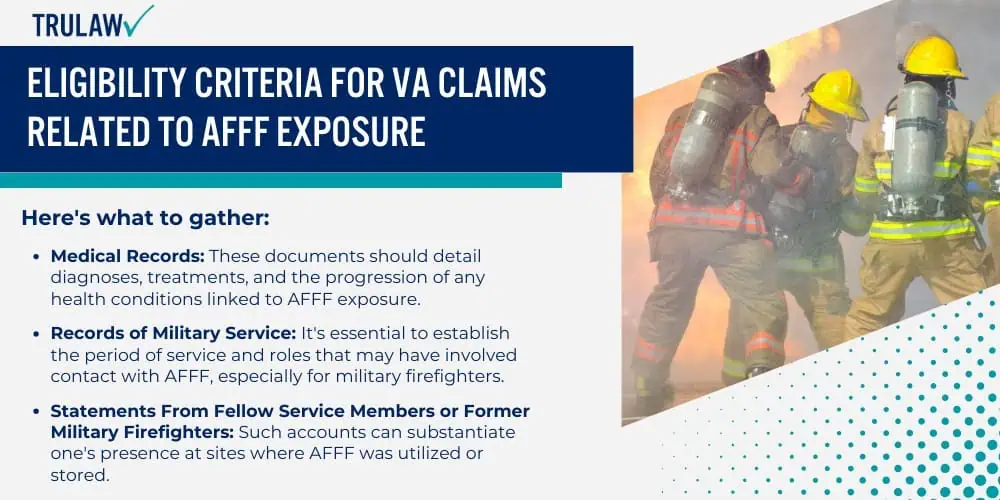
These criteria involve proving a service connection and documented evidence of exposure and health effects.
Gathering Evidence To Support Your VA Claim
Veterans asserting claims related to AFFF exposure need a comprehensive collection of evidence.
Here’s what to gather:
- Medical Records: These documents should detail diagnoses, treatments, and the progression of any health conditions linked to AFFF exposure.
- Records of Military Service: It’s essential to establish the period of service and roles that may have involved contact with AFFF, especially for military firefighters.
- Statements From Fellow Service Members or Former Military Firefighters: Such accounts can substantiate one’s presence at sites where AFFF was utilized or stored.
- Documentation Demonstrating the Link between AFFF Exposure and the Present Medical Condition (Service Connection): This scientific or competent medical evidence can help establish a direct relationship between exposure to AFFF during military service and current health issues.
Veterans are responsible for providing evidence that their exposure is associated with their time in service.
Veterans Affairs (VA) reviews this information critically to determine the validity of a VA disability claim.
